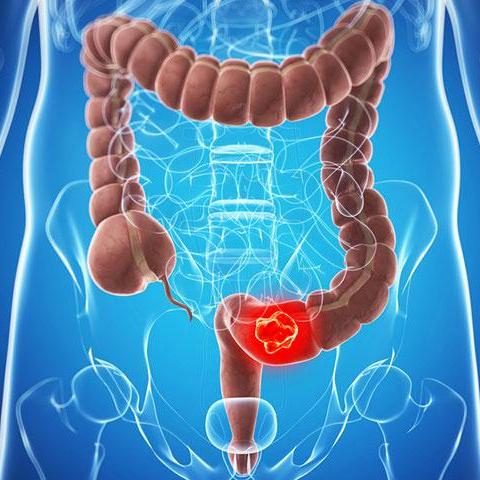Hello, my name is Dr. Teena, and I am an otolaryngologist with a small clinic. I specialize in treating conditions related to the ear, nose, and throat, providing personalized care to help my patients improve their health and quality of life. My clinic is dedicated to offering expert diagnosis and effective treatments for all ENT-related concerns.
-
6 Posts
-
3 Photos
-
0 Videos
-
29/09/1984
-
Followed by 75 people
Recent Updates
-
Hi everyone! I’m Dr. Teena, a specialist in Otolaryngology — also known as ENT (Ear, Nose, and Throat). I work with patients across all age groups to diagnose and treat conditions related to hearing, sinus health, voice, throat infections, allergies, sleep apnea, and more.
Otolaryngology is a unique branch of medicine that blends medical treatment with surgical expertise, helping patients with everything from ear infections and tonsillitis to vocal cord disorders and sinus surgeries.
I’d love to know — which of these do YOU or someone you know experience most often?
What ENT issue do you deal with most?Hi everyone! I’m Dr. Teena, a specialist in Otolaryngology — also known as ENT (Ear, Nose, and Throat). I work with patients across all age groups to diagnose and treat conditions related to hearing, sinus health, voice, throat infections, allergies, sleep apnea, and more. Otolaryngology is a unique branch of medicine that blends medical treatment with surgical expertise, helping patients with everything from ear infections and tonsillitis to vocal cord disorders and sinus surgeries. I’d love to know — which of these do YOU or someone you know experience most often? What ENT issue do you deal with most?22000 Comments 0 Shares 8K Views 17
17 Please log in to like, share and comment!
Please log in to like, share and comment! -
Hearing Health: Listen to Life
Hearing is one of our most vital senses—it connects us to people, nature, and the world around us. Good hearing health enhances communication, boosts emotional well-being, and improves quality of life. Protecting and caring for our ears is essential at every age.
Key Aspects of Hearing Health:
Prevention: Avoiding loud noises, using ear protection in noisy environments, and limiting headphone volume.
Early Detection: Recognizing signs of hearing loss such as frequently asking others to repeat themselves or turning up the volume too high.
Hearing Tests: Regular check-ups with an audiologist to catch issues early.
Treatment & Aids: Using hearing aids, cochlear implants, or therapy to improve hearing and speech understanding.
Communication Support: Learning lip-reading or sign language if needed, and promoting awareness in families and communities.
👂 Healthy hearing means staying connected. Don’t wait—get your hearing checked and take steps to protect your ears for life.Hearing Health: Listen to Life Hearing is one of our most vital senses—it connects us to people, nature, and the world around us. Good hearing health enhances communication, boosts emotional well-being, and improves quality of life. Protecting and caring for our ears is essential at every age. Key Aspects of Hearing Health: Prevention: Avoiding loud noises, using ear protection in noisy environments, and limiting headphone volume. Early Detection: Recognizing signs of hearing loss such as frequently asking others to repeat themselves or turning up the volume too high. Hearing Tests: Regular check-ups with an audiologist to catch issues early. Treatment & Aids: Using hearing aids, cochlear implants, or therapy to improve hearing and speech understanding. Communication Support: Learning lip-reading or sign language if needed, and promoting awareness in families and communities. 👂 Healthy hearing means staying connected. Don’t wait—get your hearing checked and take steps to protect your ears for life.0 Comments 0 Shares 4K Views 16
16
-
An otolaryngologist, or ENT specialist, is a medical doctor with advanced training in the diagnosis and treatment of disorders affecting the ear, nose, throat, and related areas of the head and neck. They are experts in a wide range of conditions, including hearing loss, ear infections, balance disorders, sinusitis, allergies, voice and swallowing disorders, and sleep-related issues like sleep apnea. ENT specialists also manage structural problems, such as deviated septums, tonsil and adenoid removal, and more complex surgeries, including treatment of head and neck cancers.
In addition to medical treatments, otolaryngologists perform various surgical procedures, from minimally invasive techniques to advanced operations, helping patients with everything from hearing restoration to reconstructive surgery after trauma or cancer treatment. Their comprehensive care approach blends medicine and surgery, allowing them to offer tailored solutions to improve breathing, hearing, speech, and overall well-being.
#ENT #otolaryngologistAn otolaryngologist, or ENT specialist, is a medical doctor with advanced training in the diagnosis and treatment of disorders affecting the ear, nose, throat, and related areas of the head and neck. They are experts in a wide range of conditions, including hearing loss, ear infections, balance disorders, sinusitis, allergies, voice and swallowing disorders, and sleep-related issues like sleep apnea. ENT specialists also manage structural problems, such as deviated septums, tonsil and adenoid removal, and more complex surgeries, including treatment of head and neck cancers. In addition to medical treatments, otolaryngologists perform various surgical procedures, from minimally invasive techniques to advanced operations, helping patients with everything from hearing restoration to reconstructive surgery after trauma or cancer treatment. Their comprehensive care approach blends medicine and surgery, allowing them to offer tailored solutions to improve breathing, hearing, speech, and overall well-being. #ENT #otolaryngologist0 Comments 0 Shares 2K Views
 13
13
-
Hearing Loss: Hearing issues caused by age, infections, or exposure to loud noise.
Sinusitis: Inflammation or infection of the sinuses, causing nasal congestion, pain, and headaches.
Tonsillitis: Inflammation of the tonsils, often due to bacterial or viral infections.
Tinnitus: A ringing or buzzing noise in the ears without an external source.
Vertigo: A condition that causes dizziness or a sensation of spinning, often linked to issues with the inner ear.
Sleep Apnea: A sleep disorder characterized by pauses in breathing, which can be related to airway obstructions.Hearing Loss: Hearing issues caused by age, infections, or exposure to loud noise. Sinusitis: Inflammation or infection of the sinuses, causing nasal congestion, pain, and headaches. Tonsillitis: Inflammation of the tonsils, often due to bacterial or viral infections. Tinnitus: A ringing or buzzing noise in the ears without an external source. Vertigo: A condition that causes dizziness or a sensation of spinning, often linked to issues with the inner ear. Sleep Apnea: A sleep disorder characterized by pauses in breathing, which can be related to airway obstructions.0 Comments 0 Shares 2K Views 9
9
-
1. Sore Throat
Warm Salt Water Gargle: Mix 1/2 teaspoon of salt in a glass of warm water. Gargle with it to reduce swelling and relieve throat irritation.
Honey and Lemon: Add 1 tablespoon of honey and a few drops of lemon juice to warm water. Sip slowly to soothe a sore throat.
2. Earache
Warm Compress: Apply a warm cloth or heating pad to the affected ear for 10-15 minutes to ease pain.
Olive Oil Drops: Slightly warm olive oil and put a few drops in the ear to relieve discomfort. Make sure the oil is not too hot.
3. Nasal Congestion (Blocked Nose)
Steam Inhalation: Boil water, pour it into a bowl, and inhale the steam by covering your head with a towel. Add a few drops of eucalyptus oil for enhanced relief.
Saline Solution: Mix 1/2 teaspoon of salt in a glass of warm water and use it as a nasal rinse to clear congestion.
4. Sinusitis
Ginger Tea: Ginger has anti-inflammatory properties. Boil fresh ginger slices in water, strain, and drink to relieve sinus pressure.
Apple Cider Vinegar: Mix 1 tablespoon of apple cider vinegar in warm water and drink it to break down mucus and clear the sinuses.
5. Tonsillitis
Chamomile Tea: Drink chamomile tea with honey to reduce inflammation and soothe the throat.
Turmeric Milk: Add 1 teaspoon of turmeric powder to a glass of warm milk and drink it at night to reduce tonsil pain.
6. Allergic Rhinitis (Hay Fever)
Peppermint Tea: Peppermint contains menthol, which can help reduce symptoms of allergies like a runny or stuffy nose.
Quercetin-Rich Foods: Include foods like apples, onions, and berries in your diet. Quercetin is a natural antihistamine and helps with allergies.
1. Sore Throat Warm Salt Water Gargle: Mix 1/2 teaspoon of salt in a glass of warm water. Gargle with it to reduce swelling and relieve throat irritation. Honey and Lemon: Add 1 tablespoon of honey and a few drops of lemon juice to warm water. Sip slowly to soothe a sore throat. 2. Earache Warm Compress: Apply a warm cloth or heating pad to the affected ear for 10-15 minutes to ease pain. Olive Oil Drops: Slightly warm olive oil and put a few drops in the ear to relieve discomfort. Make sure the oil is not too hot. 3. Nasal Congestion (Blocked Nose) Steam Inhalation: Boil water, pour it into a bowl, and inhale the steam by covering your head with a towel. Add a few drops of eucalyptus oil for enhanced relief. Saline Solution: Mix 1/2 teaspoon of salt in a glass of warm water and use it as a nasal rinse to clear congestion. 4. Sinusitis Ginger Tea: Ginger has anti-inflammatory properties. Boil fresh ginger slices in water, strain, and drink to relieve sinus pressure. Apple Cider Vinegar: Mix 1 tablespoon of apple cider vinegar in warm water and drink it to break down mucus and clear the sinuses. 5. Tonsillitis Chamomile Tea: Drink chamomile tea with honey to reduce inflammation and soothe the throat. Turmeric Milk: Add 1 teaspoon of turmeric powder to a glass of warm milk and drink it at night to reduce tonsil pain. 6. Allergic Rhinitis (Hay Fever) Peppermint Tea: Peppermint contains menthol, which can help reduce symptoms of allergies like a runny or stuffy nose. Quercetin-Rich Foods: Include foods like apples, onions, and berries in your diet. Quercetin is a natural antihistamine and helps with allergies.0 Comments 0 Shares 2K Views
 9
9
-
More Stories


















